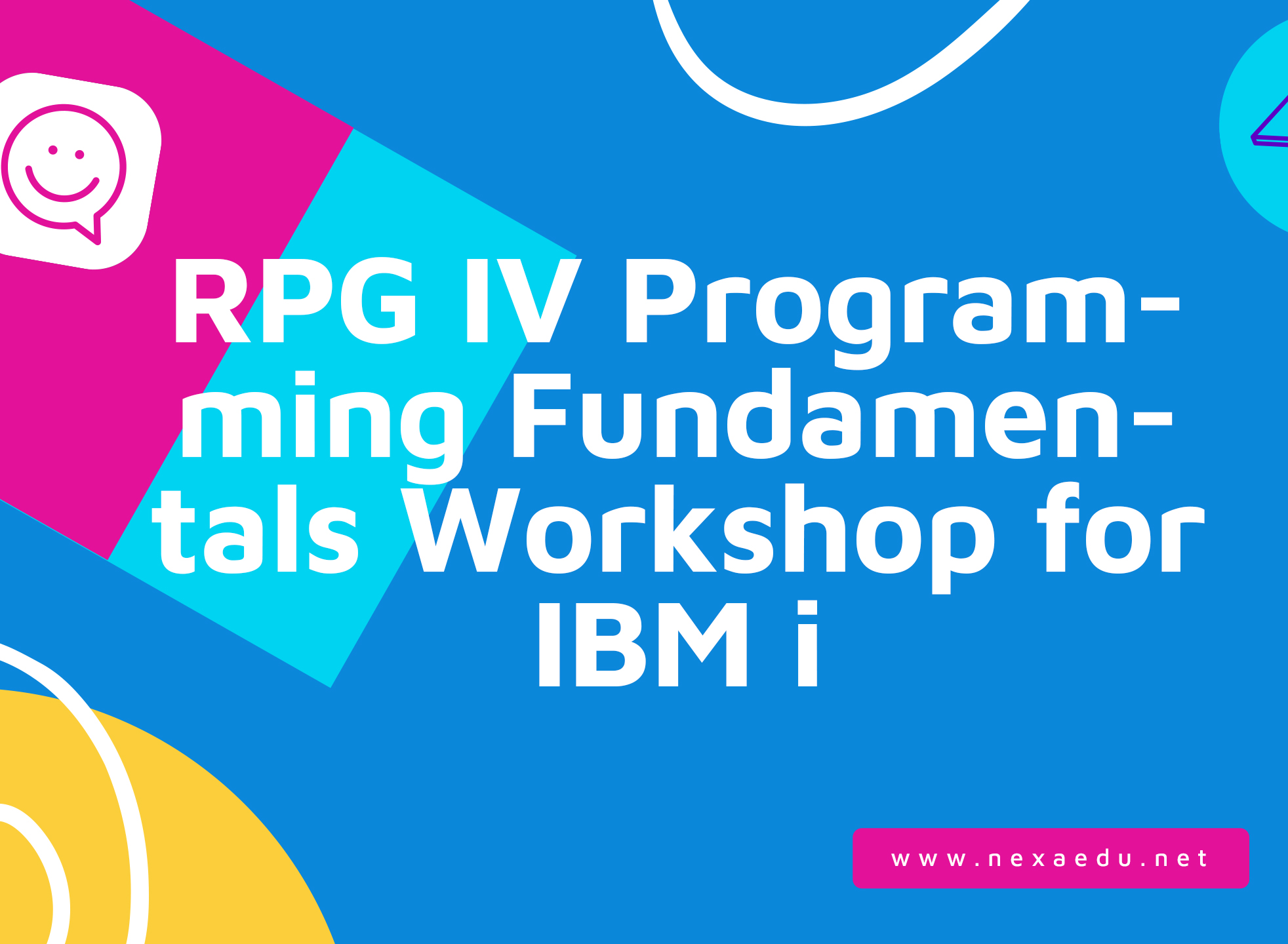About this course
Course Overview
Developers who are familiar with programming in any High Level Language (HLL), but who are new to iSeries RPG IV will find this course the ideal introduction.
Target Audience
This is the first in a series of three courses designed for programmers who are new to RPG IV. Basic programming experience is required. The student may have attended at least an introductory course to programming such as those available at colleges/universities. The student will not be taught the concepts of programming. This course is NOT designed for RPG III (RPG/400) programmers who wish to develop RPG IV skills. (See the OE85GB course for further details.)
Course Objectives
After completing this course, the student should be able to:
- Write RPG IV programs to produce reports
- Write simple RPG IV enquiry programs that interact with displays
- Use the editor to enter and modify source code
- Compile source code to create RPG IV programs
- Review compilation listings to find and correct any compilation errors
- Maintain existing applications written in RPG IV language
- Use the Debugger tool to determine the cause of incorrect results
- Use many popular RPG IV Built in Functions
Course Content
The course includes the following Topics:
- CODE/400 Tutorial
- RPG IV Introduction
- Coding Specifications for RPG IV
- Data Representation and Definition
- Manipulating Data in Calculations
- Printing from an RPG IV Program
- Using the Debugger
- Structured Programming and Subroutines
- Accessing the DB2 Database Using RPG IV
- Coding enquiry Programs
- What's Next?
Course Prerequisites
Before attending this course, the student should be able to:
- Use a Windows based PC
- Run PC applications using menus, icons, tool bars, etc.
- Write a simple program in another high level language (for example, COBOL, BASIC or RPG II) - not necessarily on the iSeries platform
- Use basic OS/400 navigation tools including:
- Use and display iSeries Output Queues
- Use basic CL commands such as WRKJOB and DSPMSG.
- Use the Program Development Manager (PDM) and Source Entry Utility (SEU) tools to create and maintain DDS
- Create and maintain physical and logical files.
Comments (0)






